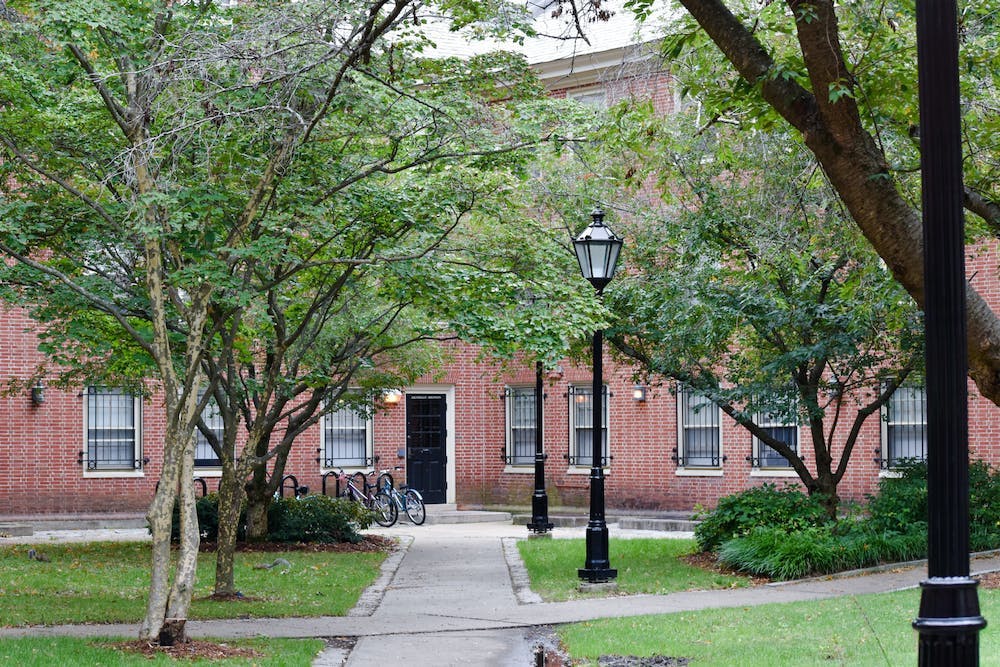Only six out of approximately 200 students who indicated their preference for gender inclusive housing were initially assigned to it, according to several first-year students who requested gender inclusive housing for the 2022-2023 year.
Students who were placed in incorrect housing assignments were emailed by the Office of Residential Life Aug. 18. The email, written by Brenda Ice, senior associate dean and senior director of residential life and sent to The Herald by Kate Porter, associate director of communications and outreach, asked students who wished to be assigned different housing to fill out a room change form or set up a meeting with staff from ResLife.
“A number of students who opted into gender-inclusive housing were not matched accordingly,” Ice wrote in the email.
The Office of Residential Life “strive(s) to prioritize your wellbeing, including gender identity and inclusivity,” Ice continued. “I apologize that this caused concern.”
The new room change form had a deadline of Aug. 25, according to the email.
In an email to The Herald, Ice wrote that “we are happy to share that by the end of the placement process, all students who requested support were given it” with regard to gender inclusive housing.
“We are continually working to improve our processes, in partnership with the LGBTQ Center staff, to provide the best experience for all students,” she continued.
First-year housing assignments are made based on the results of the New Student Housing Questionnaire. The form, completed by all incoming undergraduates living on campus, gathers information about living habits and other preferences to inform roommate pairings and includes an option for interest in gender inclusive housing.
“By default, Brown places most first-year students into rooms with a roommate or roommates of the same legal sex,” according to the Office of Residential Life website. Gender inclusive housing “is intended primarily for students whose gender identity and/or legal sex do not allow them to be comfortable with a traditional roommate assignment (including but not limited to students who identify as transgender, genderqueer, etc.).”
Upon receiving their assignments Aug. 11, several students who elected to participate in gender inclusive housing realized that many of them were not given housing that met this preference.
The Herald spoke to five students who requested gender inclusive housing about their experiences navigating their assignments and meetings with University resources.
Pei-Jun Huang ’26, one of six students who was originally assigned gender inclusive housing, first learned about the situation of their peers in a group chat for transgender, genderqueer and other non-cisgender first-year students at Brown.
Multiple group chat members who opted into gender inclusive housing shared that their roommates did not opt in, Huang said.
“People started texting (each other), saying, ‘Hey, did anyone else not get put into gender inclusive housing?” said Talia Yett ’26, another member of the group chat who opted for gender inclusive housing in the original form. Yett was not placed in their preferred housing.
“People were saying, ‘I’m in a room with two cis females and I’m transmasc,’ or things like that,” Yett added. “That’s when it came to light for most of us that only a couple of people actually got put into gender inclusive housing.”
Huang had already reached out to the LGBTQ Center to discuss their concerns about how the University assigns housing for transgender students, he said. They later contacted the center with about ten other first-years seeking to talk through their experiences with the gender inclusive housing assignment process.
Three attendees of the Aug. 22 meeting — Huang, Cassius Hall ’26 and Malcolm Certain ’26 — said to The Herald that in the meeting, they were told that six students were placed into gender inclusive housing, while approximately 200 students who requested gender inclusive housing were not placed in it and had been sent a form to request a roommate switch.
Multiple administrators from ResLife and the LGBTQ Center did not respond to requests to confirm the number of students initially placed in gender inclusive housing.
“The LGBTQ Center was very helpful and very receptive,” Certain said. “They gave us all of the most current information on what ResLife was doing directly.”
Following the meeting, attendees relayed information to other affected students, they said.
“We were all just freaking out because obviously it’s a privacy issue (and) it’s a safety issue,” Owen Blair ’26 said.
Yett’s housing assignment resulted in living complications even after their arrival on campus. Yett said they weren't assigned gender inclusive housing but did not request a room change because they were placed in a single room. A few days after arriving at Brown, Yett learned that they were placed on a single-sex floor.
“As someone who is genderqueer, who chose gender inclusive housing, I’m now instead on a floor housing only women,” Yett continued. “It’s something that I’m very uncomfortable with. It’s something that I should not have to deal with.”
As of Sept. 29, Yett has not applied for a room change. “I considered changing but am already overwhelmed being a first-year,” Yett wrote in an email to The Herald.
Certain said that because housing assignments are based on legal sex by default, non-cisgender students have to opt into housing that is comfortable for them instead of being able to access it by default. “A lot of trans and non-binary students have to get into gender inclusive housing, … or they’re going to get accomodations that will end up being pretty unsafe or uncomfortable for them,” Certain added.
Caitlin O'Neill, senior assistant director of the LGBTQ Center, directed requests for comment to Porter. Kelly Garrett, director of the LGBTQ center, could not be reached for comment.

Neil Mehta was the editor-in-chief and president of the Brown Daily Herald's 134th editorial board. They study public health and statistics at Brown. Outside the office, you can find Neil baking and playing Tetris.





